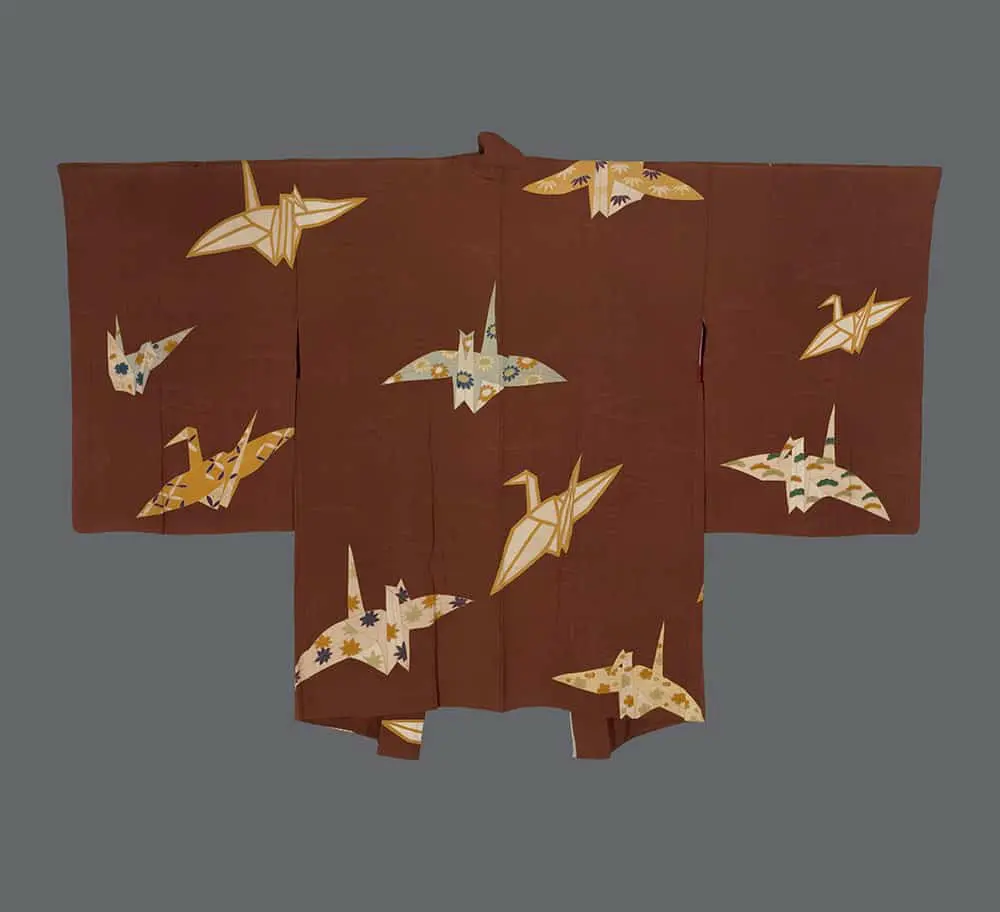This rinzu silk haori represents a masterful synthesis of traditional Japanese symbolism with the geometric sensibilities of contemporary Art Deco design. The garment features elegantly scattered origami crane motifs executed in yuzen-dyeing technique, their folded paper forms rendered with remarkable three-dimensional clarity against the rich burgundy ground. The cranes appear to be caught in mid-flight across the textile's surface, some depicted with decorative patterns suggesting the printed papers used in origami practice, while others maintain the pure geometric abstraction of folded forms. The composition demonstrates clear influence from modernist design principles in its asymmetrical arrangement and bold contrast between positive and negative space, while the precision of the yuzen technique allows for crisp edges that emphasize the origami's architectural quality.
The crane holds profound significance in Japanese culture as a symbol of longevity, good fortune, and peace, with the legend that folding one thousand paper cranes will grant a wish adding layers of hope and perseverance to the motif. During this period of social transformation and increasing international awareness, the choice to celebrate this quintessentially Japanese art form speaks to cultural pride and continuity. The detail images reveal the extraordinary technical skill required to achieve the subtle color gradations and precise geometric forms through yuzen dyeing, with touches of blue and gold creating depth within each crane's folded structure. The shibori-dyed inner lining, visible in gradient tones, provides a hidden luxury that contrasts beautifully with the exterior's graphic precision, embodying the Japanese aesthetic principle of concealed refinement.
it measures 50 inches (127 cm) from sleeve-end to sleeve-end, standing at 31 inches (79 cm) in height.
.avif)







